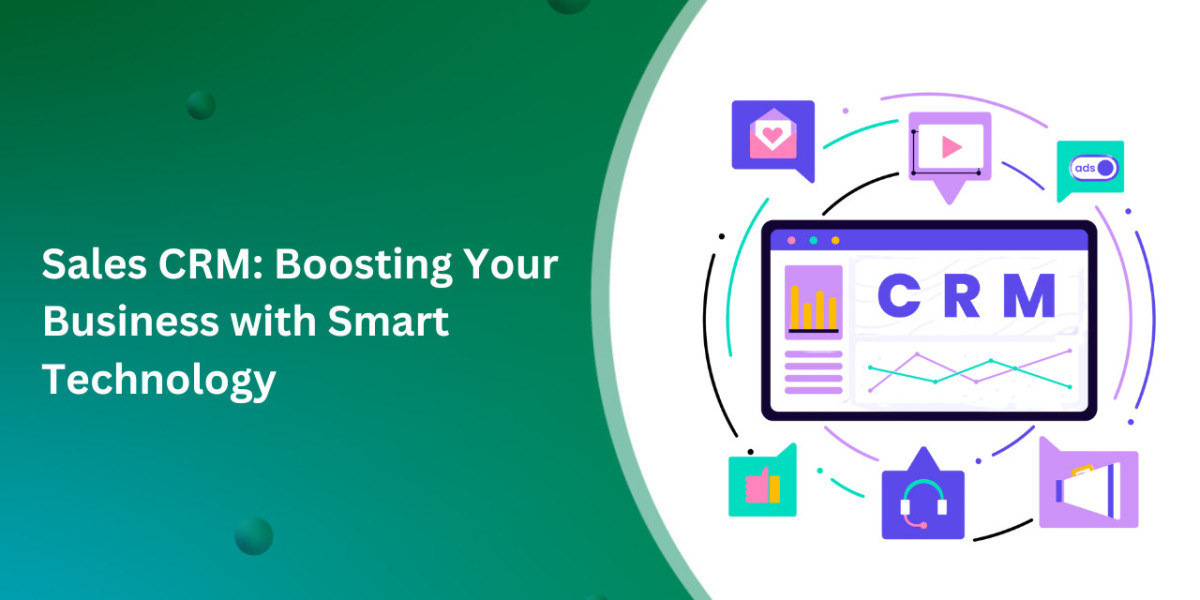In today's fast-paced business world, staying organized and efficient is crucial for success. This is where a Sales Customer Relationship Management (CRM) system comes into play. Whether you're in real estate or any other industry, a good CRM Software can be a game-changer for your sales process. Let's dive into what Sales CRM is all about and how it can help your business thrive.
What is Sales CRM?
CRM software is a powerful tool designed to help businesses manage their relationships with customers and potential clients. A Sales CRM focuses specifically on the sales aspect of these relationships. It's like a smart assistant that helps you keep track of your customers, deals, and sales activities all in one place.
Why Your Business Needs a Sales CRM
- Organized Customer Information: Imagine having all your customer details, communication history, and preferences in one easy-to-access place. That's what a Sales CRM does for you.
- Improved Sales Process: A good CRM helps you map out and follow a consistent sales process, ensuring no opportunities slip through the cracks.
- Better Team Collaboration: With a centralized system, your entire sales team can work together more effectively, sharing information and updates in real-time.
- Data-Driven Decisions: CRM software provides valuable insights and reports, helping you make informed decisions to grow your business.
- Time-Saving Automation: Many routine tasks can be automated, freeing up your time to focus on what really matters – closing deals and building relationships.
Key Features of a Sales CRM
- Contact Management
Keep all your customer and lead information organized and easily accessible. This includes contact details, interaction history, and important notes.
- Sales Pipeline Management
Visualize and manage your entire Sales Process from lead generation to closing deals. This feature helps you understand where each potential sale stands and what needs to be done next.
- Task and Calendar Management
Never miss a follow-up or important meeting again. A good Sales CRM includes tools to manage your tasks and schedule, often with reminders and integrations with popular calendar apps.
- Reporting and Analytics
Get insights into your sales performance with detailed reports and dashboards. This helps you understand what's working and where you need to improve.
- Mobile Access
In today's mobile world, having access to your CRM on-the-go is crucial. Look for a CRM that offers a user-friendly mobile app.
- Integration Capabilities
Your CRM should play well with other tools you use, such as email, marketing automation software, and accounting systems.
Spotlight on Real Estate CRM Software
For those in the real estate industry, a specialized Real Estate CRM software can be particularly beneficial. These systems often include features tailored to the unique needs of real estate professionals, such as:
- Property listing management
- Lead tracking specific to property inquiries
- Integration with property portals
- Document management for contracts and listings
Real estate CRM Software helps agents and brokers manage their client relationships, property listings, and transactions more efficiently, ultimately leading to more closed deals and satisfied clients.
The Sales Pipeline: Your Road to Success
A key component of any Sales CRM is the Sales Pipeline. This is a visual representation of where your potential customers are in the buying process. A typical sales pipeline might include stages like:
- Lead Generation
- Initial Contact
- Qualification
- Proposal/Quote
- Negotiation
- Closed Won/Lost
By clearly defining and tracking these stages in your CRM, you can:
- Identify bottlenecks in your sales process
- Forecast sales more accurately
- Ensure consistent follow-up with leads
- Prioritize your sales activities for maximum impact
Optimizing Your Sales Process with CRM
A well-implemented Sales CRM doesn't just track your sales process – it helps you optimize it. Here's how:
- Standardization: Create a consistent approach that all team members can follow.
- Automation: Set up automatic actions for certain stages, like sending follow-up emails or scheduling calls.
- Analysis: Use data from completed deals to refine and improve your process over time.
- Personalization: Tailor your approach based on individual customer data and preferences stored in the CRM.
Choosing the Right CRM Software
With so many options available, choosing the right CRM software can feel overwhelming. Here are some factors to consider:
- Ease of Use: Look for a user-friendly interface that your team will actually want to use.
- Scalability: Choose a system that can grow with your business.
- Customization: Ensure the CRM can be tailored to your specific business needs.
- Cost: Consider both upfront and long-term costs, including potential hidden fees.
- Support: Good customer support is crucial, especially during the implementation phase.
One CRM solution worth considering is Salestown CRM. This versatile platform offers a range of features suitable for various industries, including real estate. With its user-friendly interface and powerful capabilities, Salestown CRM can help streamline your sales process and boost your team's productivity.
Implementing Your New CRM: Tips for Success
Once you've chosen your CRM software, successful implementation is key. Here are some tips:
- Start with a Plan: Clearly define your goals and how you'll measure success.
- Get Buy-In: Ensure your team understands the benefits and is on board with the change.
- Provide Training: Invest time in properly training your team on how to use the new system.
- Clean Your Data: Take the time to clean and organize your existing data before importing it.
- Start Small: Begin with core features and gradually expand usage as your team becomes more comfortable.
- Regular Reviews: Continuously evaluate and adjust your CRM usage to ensure it's meeting your needs.
The Future of Sales CRM
As technology continues to evolve, so does CRM software. Some exciting trends to watch for include:
- Artificial Intelligence (AI) for predictive analytics and automated insights
- Enhanced mobile capabilities for sales team on-the-go
- Increased integration with social media platforms
- Virtual and augmented reality features for industries like real estate
Conclusion
In today's competitive business landscape, a robust Sales CRM is no longer a luxury – it's a necessity. By centralizing your customer data, streamlining your sales process, and providing valuable insights, a good CRM can help you build stronger customer relationships and drive sales growth.
Whether you're in real estate or any other industry, taking the time to choose and implement the right CRM Software can pay dividends in increased efficiency, better customer satisfaction, and ultimately, a healthier bottom line. So why wait? Start exploring your CRM options today and take the first step towards transforming your sales process.








